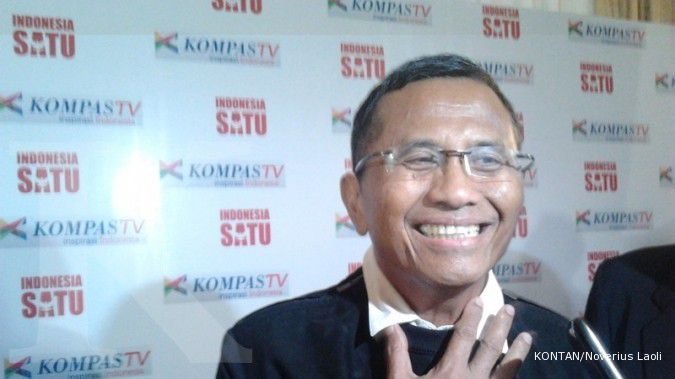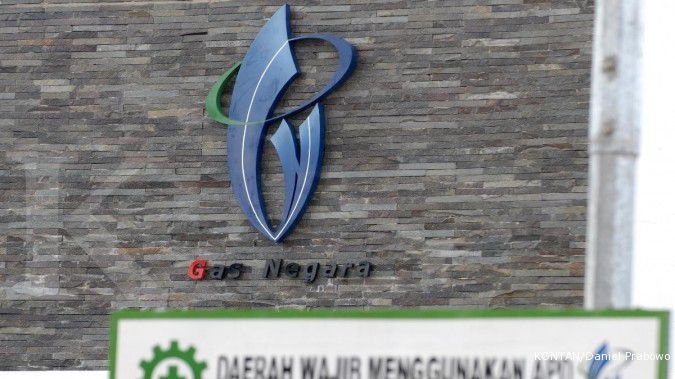JAKARTA. The financial performances by state-owned PT Perusahaan Gas Negara (PGN) and PT Timah varied greatly during the first nine months of the year.
From January to September, PGN — which is a gas transmission and distribution company — saw its revenue surge by one-fifth to US$2.2 billion from the same period in 2012.
Meanwhile, tin miner Timah recorded a decline in both its revenue and net profits on the back of lower tin production and sale volumes, even though its average selling price was higher this year than last year.
PGN attributed the increase to higher gas distribution volume and the positive performance by one of its subsidiaries.
“PGN’s revenue in the first nine months of 2013 rose 20 percent in line with an increase in the distribution volume, which reached 808 mmscfd [million standard cubic feet per day] compared to 801 mmscfd during the same period last year,” PGN said in a press statement on Thursday.
However, lower gas consumption by customers led to a fall in its transmission business.
The total volume of gas transmitted by PGN and its subsidiary, PT Transportasi Gas Indonesia, amounted to 867 mmscfd during January to September, down from 878 mmscfd year-on-year. At the same time, PGN managed to increase the number of its customers to 91,109, from 89,868.
PGN also announced that another of its subsidiaries, PT Saka Energi Indonesia, had begun to contribute to its consolidated revenue after Saka acquired Kufpec Indonesia (Pangkah) BV. Kufpec currently controls a 25 percent participating interest in the Pangkah block in Gresik, East Java.
“Income from the block, which has been recorded since July this year, contributed $17 million to PGN’s consolidated revenue,” PGN said, adding that the other two blocks acquired by Saka — the Ketapang block in East Java and the Bangkanai block in Central Kalimantan — were expected to start production at the end of 2014.
With its growing business, PGN reported that its operating costs jumped more than half to $1.16 billion on the back of rising gas prices. “There was an increase in gas prices from Sept. 1, 2012, to April 1, 2013,” the company said.
Weakening foreign currencies against the US dollar benefited the company’s bottom line, however, as it recorded its financial performance in dollars.
Nevertheless, PGN’s net profits only rose 3.3 percent to $641.61 million from January to September, thanks to revenue costs that were at a higher level than the revenue itself.
PGN shares, sold under the code PGAS, closed at Rp 5,100 (45 US cents) on Thursday on the Indonesia Stock Exchange (IDX), down 1 percent from a day before.
Meanwhile, Timah’s production dipped, leading to lower sales despite a higher average selling price, which stood at $22,455 per metric ton for the nine-month period, higher than the $21,523 per metric ton recorded last year.
But at the same time, the publicly listed firm’s tin-in-concentrate production dropped 29 percent to 17,264 tons and its refined tin production slumped 31 percent to 16,088 tons, resulting in its refined tin sales decreasing 43 percent to 15,277 tons.
By the end of September, its revenue had fallen 35.2 percent year-on-year to Rp 3.89 trillion, while its net profits dropped 61.9 percent to Rp 141.01 billion.
Timah’s corporate secretary, Agung Nugroho, attributed the lower production and sales volume to a Trade Ministerial regulation implemented this year, which stipulates that tin exports must now go through the Indonesia Commodity and Derivatives Exchange (ICDX).
“We had to make some adjustments and that affected production. However, we are certain that the overall industry will improve next year. We have begun to see the first signs of that recovery this month,” he said.
Timah shares, traded as TINS on the IDX, rose 1.2 percent from the previous day to close at Rp 1,620 on Thursday. (Tassia Sipahutar/The Jakarta Post)
PGN rises, Timah drops
November 01, 2013, 12.56 PM
/2013/10/11/238005030.jpg)
ILUSTRASI. Ini Pandangan Islam terhadap Pernikahan Beda Agama Menurut Dosen UM Surabaya. KONTAN/Fransiskus Simbolon
Source: The Jakarta Po
| Editor: Barratut Taqiyyah Rafie
Latest News
-
February 24, 2026, 03.38 PM
Eni to Reach Final Investment Decision for Indonesia Gas Projects Next Month
-
February 24, 2026, 01.00 PM
Asia Stocks Try to Steady after Wall Street Selloff Sims Mood
-
February 23, 2026, 04.50 PM
Wall Street Futures and Dollar Slide on Trump Tariff Tumult
-
February 23, 2026, 02.17 PM
Indonesia's Government Spending Jumps 26% in January 2026
-
February 23, 2026, 01.47 PM
Indonesia's Government Spending Jumps 26% in January
-
February 21, 2026, 06.00 AM
Indonesia's Pertamina to Maintain Bidding Process for US Energy Imports
-
February 20, 2026, 01.23 PM
Indonesia Secures 19% Tariff Deal with US, Palm Oil and Other Commodities Exempt
-
February 20, 2026, 08.33 AM
Indonesia, US Sign Agreement on Reciprocal Trade, Indonesian Ministry Says
-
February 19, 2026, 08.12 AM
Indonesia, Freeport Units Sign MoU to Extend Mining Permit beyond 2041













